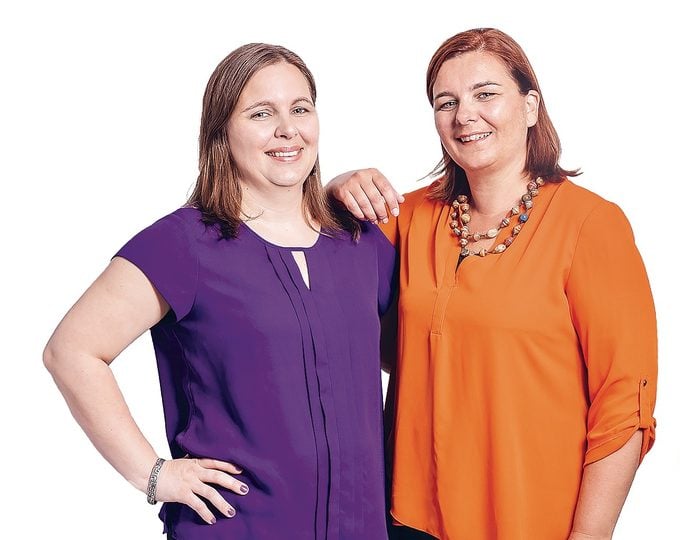Great Canadians: Floriana Wedding Project
With the Floriana Wedding Project, two sisters have created a sustainable clothing business to give back to impoverished Port-au-Prince.
 When Nicola Topsom first visited Haiti with her church group in 2006, one word echoed in her mind: “potential.” The country had just hosted its first democratic election since 2004, when a coup ousted president Jean-Bertrand Aristide. Political upheaval, gang violence and tropical storms had made chaos and destitution the norm.
When Nicola Topsom first visited Haiti with her church group in 2006, one word echoed in her mind: “potential.” The country had just hosted its first democratic election since 2004, when a coup ousted president Jean-Bertrand Aristide. Political upheaval, gang violence and tropical storms had made chaos and destitution the norm.
Even so, 42-year-old Topsom, who lives in Burlington, Ont., with her husband and two daughters, saw possibility. “If you could look through the fog of corruption, poverty and despair, the potential was there for locals to improve their lives-if the resources were provided,” she says.
Topsom returned to Haiti to do volunteer work nine more times over almost as many years. In 2010, she adopted her daughter Divna, now eight, who’d been evacuated from Port-au-Prince after a devastating earthquake. But it took until November 2014 for the right idea for a self-sustaining enterprise to present itself-and it came from a source close to home.
Inspired by an organization that shipped used prom dresses to African countries, Topsom’s sister, Abigail Sampson, who lives in Newfoundland, suggested something similar. The twist: they would bring bridal gowns-“new-looking, beautiful, quality stuff,” says Sampson-to Haiti. Community members would then sell or rent the garb at pay-what-you-can rates, with proceeds going to the local staffers.
Sampson and Topsom christened their charity the Floriana Wedding Project (named after their father’s Maltese birthplace), set up a Facebook page and started fielding offers from private donors and bridal shops across Canada. In March 2015, with two Canadian volunteers and 48 dresses in tow, the sisters rented a retail space in Port-au-Prince and hired three residents to run the shop.
At the start, the store’s principal draw was bridal dresses; now, it also offers jewellery, shoes and other accessories. Over the past year and a half, satisfied customers have included Eunice, a nanny at the orphanage from which Divna was adopted, who was married in a white gown with a long train; and 50 radiant brides taking part in a group wedding in Cap-Haitien.
“These are people who could barely afford to take the day off work, let alone buy a dress,” says Sampson. (A Floriana gown can be purchased for approximately US$40, which represents 40 per cent of a schoolteacher’s monthly salary.) Some of the participants in the group wedding were older couples who’d never had a chance to recite vows. “It was wonderful,” says Topsom, “to watch a groom’s face light up as his 70-year-old bride walked down the aisle.”
While facilitating fairy-tale nuptials has its own rewards, providing gainful employment is the game-changer. Single mom Fernanda, Floriana’s primary seamstress, supports her four kids by using damaged dress material and an ancient Singer pedal machine to create items to sell at market. A trio of young men-Caleb Antoine, Odeline “Roro” Brissault and Wadley Marcelin-oversee the charity’s original shop and its satellite location.
“This is a great opportunity,” says Marcelin. “When my sister got pregnant, the baby’s father didn’t want to take care of them, so I adopted my niece. If I didn’t have this job, I don’t think I’d be able to help.”
“Between the three of them, the guys are caring for 38 family members,” says Topsom. “They’re sending their sisters to school on the sales of wedding gowns.”
Floriana has yet to become a self-sustaining business-Topsom and Sampson currently pay the annual US$2,400 rent out of their own pockets. But in June, the staff began contributing US$50 a month toward operating costs.
Through their charity, the sisters are looking to improve the lives of a few Haitians right now; over time, they hope that number will grow into the thousands. It all comes back to one word: potential.
Related features:
Great Canadians: Art For Healing
Luke Anderson, Trailblazer
Saving Syria-One Student at a Time



